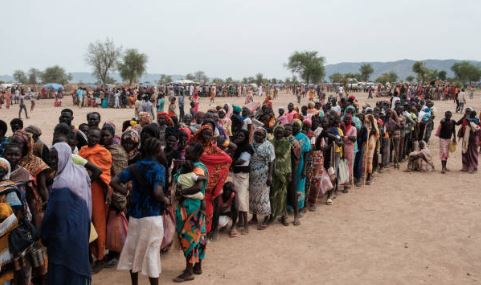The United Nations Resident and Humanitarian Coordinator in Sudan, Ms. Clementine Nkweta-Salami, announced the launch of the 2025 Humanitarian Needs and Response Plan (HNRP) which seeks US$4.2 billion to address the most urgent and critical needs of almost 21 million most vulnerable people in Sudan.
A statement sent to this publication on Thursday said the humanitarian crisis in Sudan has reached unprecedented proportions, with more than half of the population in need of urgent humanitarian and protection assistance, including 16 million children – the future of this country.
“Acute food insecurity has reached historic levels, particularly in conflict-affected regions of Darfur, Khartoum, and Kordofan,” the Humanitarian Coordinator said.
According to the United Nations Office for the Coordination of Humanitarian Affairs (OCHA) in Sudan, after more than 20 months of relentless conflict, Sudan has become one of the world’s largest humanitarian crises. Ongoing armed conflict and attacks against civilians, displacement, hunger, malnutrition, disease outbreaks, and climate shocks have left nearly two-thirds of the population in desperate need of humanitarian assistance and protection services.
OCHA said that given the scale and gravity of the humanitarian crisis in Sudan, the humanitarian community calls for urgent conflict de-escalation and unrestricted humanitarian access, including across borders and conflict lines, to fight famine and enable effective humanitarian action.
“We call on all parties to facilitate this access and ensure the protection of humanitarian operations and aid workers on the ground,” Ms. Nkweta-Salami said. “We also urge the international community to provide immediate and flexible funding. This support is crucial for scaling up and expanding the reach of critical lifesaving aid, including cash assistance, and protection services to millions of people who need them most.”
The 2025 HNRP is underpinned by a joint analysis of humanitarian needs in Sudan based on three key shocks – conflict, floods, and disease outbreaks – and their impact on the population and essential services. The analysis encompasses the entire country, recognizing the widespread impact of these three identified shocks affecting a significant portion of the population in Sudan, although the severity of impact varies across different geographic areas.




